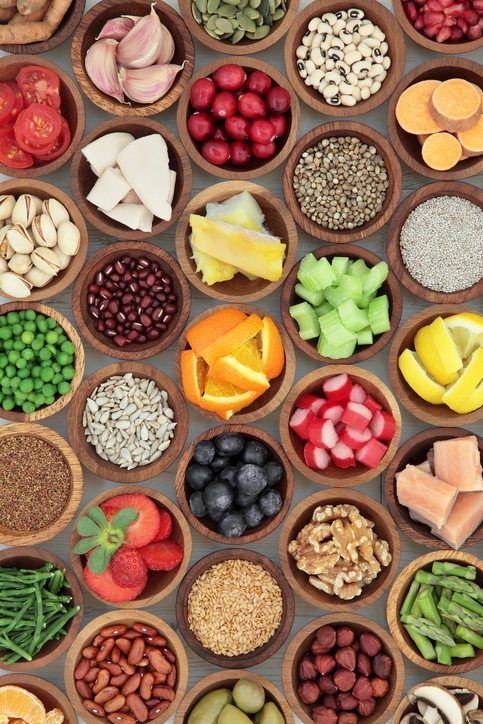
The Healthy Living Market and Cafe opened a new location at Williston in Vermont. Located at 129 Market St., the cafe is open seven days a week. It is the third location in the highly-regarded health food market. The brand is also present in Manchester, Vt. and Saratoga Springs. The company is also expanding its presence in the local area, including the Williston store. Middlebury, Vermont will soon have a new store.
The market is the biggest independent natural and organic grocery in the area. The company also has stores in South Burlington and Saratoga Springs. In its stores and cafe, the company has more than 325 employees. Its mission: To provide consumers with a first-class grocery experience. The company is committed to supplying local farmers healthy and affordable food. It is also committed supporting local farmers, and is committed to a three-bottom-line approach.
Michael Daley was recently appointed to the Healthy Living Market and Cafe's culinary team. He will oversee the development of the company's HL Fresh line of prepared meals and salads. Chef Daley has worked at kitchens that earned Michelin stars or AAA Five Diamonds. In San Francisco, he was the executive chef at Mourad Lakhlou's restaurants. He was part in a mission of providing a sustainable alternative fast-food chains as well as helping to alleviate food shortages.

Another concept for food retail in Vancouver is Healthy Living Fresh. The menu changes frequently and emphasizes creativity as well as fresh ingredients. The roster of chefs includes Matthew Jennings (VP of Culinary), Scott Como (Culinary Director), and Derek Roberts and Jimmy Winslow (Chefs). You will feel like a local when you visit the Healthy Living Market. Healthy food and beverages are also available at the market for those who want to live a healthy lifestyle.
The Healthy Living Strategy is being implemented by federal, provincial and territorial governments, except for Quebec. It encourages physical activity and healthy eating in order to lower the risk of developing chronic diseases. The PHAC’s Healthy Living Unit works closely alongside counterparts across Canada in order to promote healthy lifestyle strategies. It will implement policies that encourage healthy diets, and promote exercise. It will also support and promote a healthy lifestyle among Canadians. More information about the Healthy Living Unit can be found here
FAQ
Is Egg good for man?
The egg contains all the nutrients required by the human body. It aids in maintaining strong bones, healthy hearts, and lungs, as it also maintains stable blood pressure.
Eggs are a good source of protein and vitamins A, B12, D, E K, calcium, phosphorus iron, zinc copper, magnesium selenium and even riboflavin.
The egg yolk has high cholesterol. However, the egg yolk is low in cholesterol. Eggs are low in saturated fat compared to other foods.
They are also low in calories and sodium. Because they can be cooked in almost any way that you wish, they are versatile. You can cook them in many ways, including poaching, boiling, hard-boiling, baking, and scramble.
They are extremely nutritious and simple to prepare.
Each day, you should consume at least 2 whole eggs. You can add eggs to your diet if you don't like eating eggs.
Eggs are a good source of essential nutrients for our bodies. Consider adding eggs to your daily meal plan today.
What is the best exercise for men over 40 years old?
Older men often have more energy and stamina when they exercise.
It is important for you to know that over 40s experience a reduction in testosterone which can lead to lower sex drive.
This does not mean that you should stop engaging in physical activity. Studies have shown that some men can get more testosterone from regular aerobic exercise.
Aerobics can be a good way to improve your sexual performance.
Which exercise is best for men
It all depends on your goals. Cardio workouts are great if you're looking to lose weight. They burn calories much faster than strength-training exercises.
Strength training, on the other hand, is better if you are looking to increase muscle mass.
Both types of exercise have proven benefits if you want to improve your overall health.
I recommend HIIT, or sprint interval training, if you want fast results. This type training will help you quickly lose fat by increasing your metabolism. It increases your endurance so you can continue training even when tired.
What's a good workout plan for 7 days?
A seven day exercise program should include cardiovascular training (running or biking), strength exercises (using freeweights, weight machines) and one flexibility/core workout. Each activity should be performed at least once each week. Each session should not take more than 45 mins.
Cardiovascular Exercise: Running/Biking/Swimming
You should aim to get at least 60 mins of cardio exercise per week. Try to do 75 minutes per semaine for the best results. Cardio exercises can increase blood flow and stimulate the growth of muscles.
Strength Training
While cardio exercises target the heart and lungs, strength training targets the muscles and bones. Strength training increases lean muscle mass and helps to burn calories even at rest.
Flexibility and Core Workouts
You can strengthen your entire body by strengthening flexibility and core exercises. Both yoga or Pilates are great options.
What is the best way to lose weight?
Losing weight is easier said than done. Many people give up because they don’t know what else to do.
You can lose weight by following a few simple steps.
First, ensure you eat fewer calories that you burn. If you consume more calories than what you burn, you will gain weight.
For all of those extra calories to be burned, it is important that you exercise regularly. You have many options, including walking, biking, dancing and jogging.
Third, you need to stop drinking alcohol and smoking cigarettes. These habits lead to a higher intake of calories than usual.
Fourth, you need to cut back on fatty foods and junk food. You can replace them by healthier choices such as fruits, vegetables or lean meats.
Fifth, you must change your lifestyle and adopt new habits. You may have to get up before the rest of the world to exercise.
Sixth, you must be disciplined and follow your diet plan.
To burn extra calories, you can also join a gym or take an aerobics class.
Follow these simple steps and you'll soon start to see the results.
How many calories should I consume daily?
It varies from one person to another. On average, between 2000 and 2500 calories a day. Based on your age, gender, height and activity level, you will need to calculate how many calories you require.
Does weightlifting burn more fat than other forms of exercise?
You can lose more fat by weight lifting, but only when you do it in conjunction with cardio.
To maximize the benefits of weightlifting, you need to perform it after cardio workouts.
Weightlifting is a good way to lose weight. It increases your heart beat and oxygen consumption.
But if you do not combine it with cardio, you will not see any significant changes in your body composition.
Statistics
- Are You One of the 20% of Guys (mh.co.za)
- Cardmembers earn 5% Back at Amazon.com with a Prime Credit Card. (amazon.com)
- By John Thompson Take a whopping 38% off a set of PowerBlock Pros. (menshealth.com)
- According to the American Academy of Dermatology (AAD), men over 50 are at a heightened risk of developing it. (healthline.com)
- 10 pounds in a month is likely during a lean bulking phase, especially for beginners. (muscleandstrength.com)
External Links
How To
How do I lose fat by exercising?
Exercise burns calories by increasing metabolism and oxygen consumption.
You'll lose weight safely if you exercise at moderate intensity.
These are the top tips for burning fat while you exercise.
-
Cardio exercises include swimming, running or cycling.
-
Exercise for 30 minutes three times per week.
-
Add strength training to your workouts if you are looking to lose more weight.
-
Avoid intense workouts. You can build muscle and not break down muscle tissue.
-
Keep hydrated during exercise. Water helps to flush out toxins from the body and maintains proper hydration.
-
After exercising, consume low-fat protein smoothies. Protein shakes are great for your muscles and energy.
-
Take smaller meals throughout each day to avoid feeling hungry.
-
Don't skip breakfast! Skipping breakfast can cause you to feel tired and sluggish.
-
Take care of your mental health. Stressful situations may slow down your metabolism.
-
Keep a positive attitude. Research shows that overweight people gain more weight if they believe they are overweight than those who believe they look good.
-
Get enough sleep. It is harder to lose fat if you don't get enough sleep.
-
Be active. Make sure you get up and move every hour.
-
Maintain a healthy diet. Eat right to feel satisfied and full for longer.
-
Find relaxation methods. Your body won't release stress hormones that cause muscle tissue destruction if you have a tense mind.
A balanced diet is one that includes all of the essential nutrients required for growth.
Instead of eating three large meals a day, eat six smaller meals every day. This allows your body to properly digest what you have eaten.
For strong bones, we need 500 mgs of calcium daily. Calcium is found in dairy products like yogurt, fortified milk beverages, orange juices, cereals and bread.
Calcium can be found in leafy green veggies, beans, tofu and nuts as well as seeds, nuts and cheese.
Your body needs vitamin D to absorb calcium. Vitamin D is found in eggs yolk, fatty fish and fortified foods.
Vitamin E is vital for your skin's health. Vitamin E can also be found in vegetable oil, wheat germ oils, peanuts as well almonds, sunflower seeds and corn.
Your body needs zinc to maintain normal immune function and heal wounds. Zinc can be found in seafood, legumes and meats.
Zinc deficiency can cause fatigue, loss of appetite, depression, and impaired immunity.
Consuming too much sugar can cause insulin resistance. This causes an increase in blood glucose levels. Insulin resistance leads to weight gain.
Insulin resistance develops when there are high levels of free radicals in the bloodstream. Free radicals are molecules that have unpaired electrons, which can cause damage to cell membranes or other parts of your body.
Food additives, pesticides and herbicides, as well as preservatives, smoking and radiation are all sources of free radicals.
Free radicals can lead to cancer and heart disease, diabetes mellitus, arthritis, asthma, and premature aging.
A well-balanced diet rich in antioxidants is the best way for you to avoid free radical damage. Antioxidants protect against oxidative damage.
Antioxidant vitamins include Vitamin C (found in citrus fruits), beta carotene (found in carrots, sweet potatoes, spinach, broccoli, cantaloupe, apricots, squash, mangoes, peaches, peppers, tomatoes, cabbage, cauliflower, kale, Brussels sprouts, collard greens, watermelon, and strawberries), and Vitamin E (found in nuts, olive oil, avocados, and eggs).
Other antioxidant nutrients include selenium, copper, manganese, and zinc.
Selenium protects cells against oxidative damage from free radicals. Selenium is found in Brazil nuts, tuna, liver, kidney, shrimp, cod, turkey, beef, lamb, pork, and chicken.
Copper protects your eyes, brain, eyes and red blood cell. Copper is found in shellfish, poultry, meat, and organ meats.
Manganese forms an essential part of bone structure. Manganese is found as a component of bone structure in brown rice (spinach, bananas), prunes, raisins and oatmeal.
Zinc is necessary for average growth, reproduction, and wound healing. Zn is present in lean cuts of meat and white fish, as well as eggs.